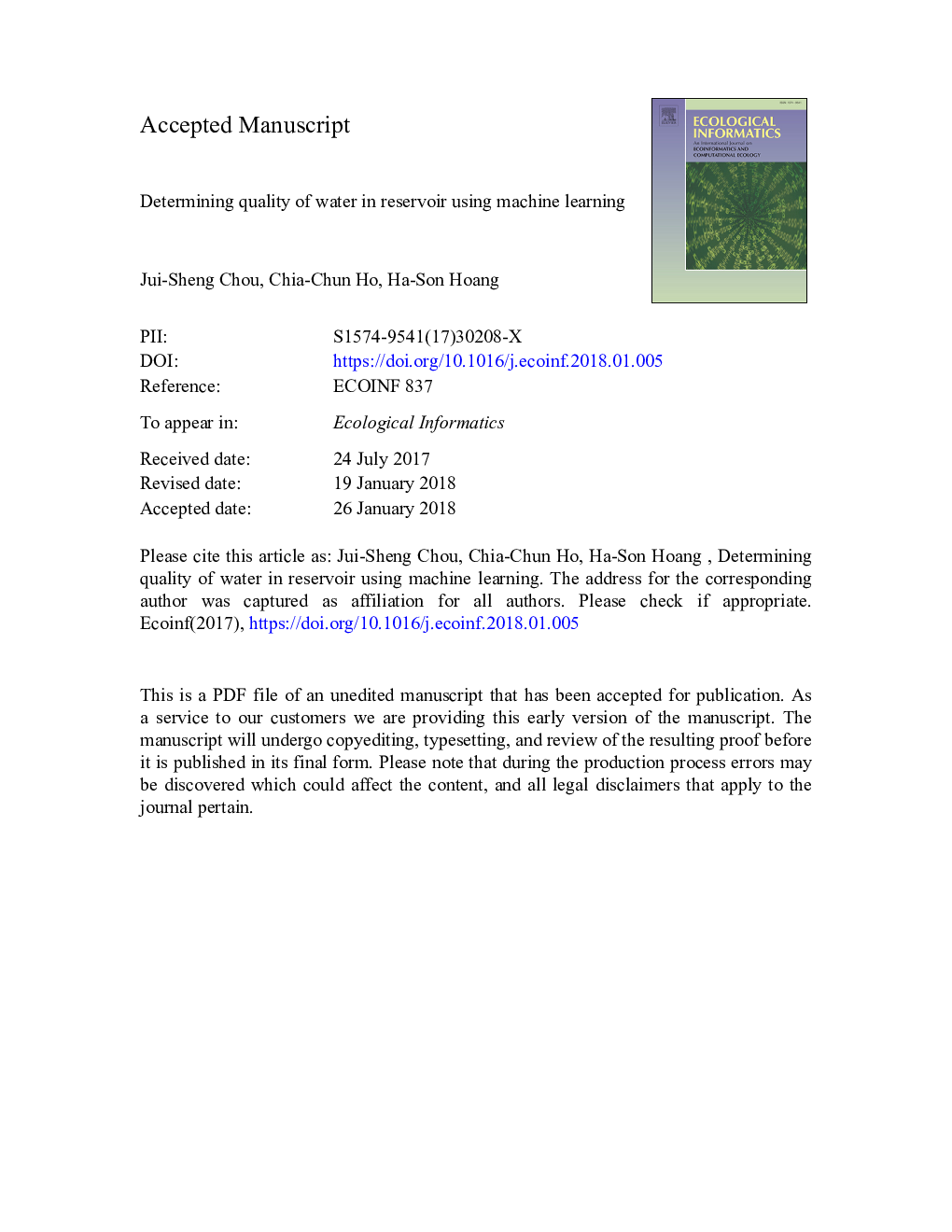| Article ID | Journal | Published Year | Pages | File Type |
|---|---|---|---|---|
| 8845838 | Ecological Informatics | 2018 | 66 Pages |
Abstract
Water quality is one of the most critical issues in reservoir management owing to its strong effects on the natural environment and human life. This study establishes a machine learning approach for predicting Carlson's Trophic State Index, which is a frequently used metric of water quality in reservoirs. Data collected over ten years (1995-2016) from the stations at 20 reservoirs in Taiwan were preprocessed as the input for the modeling system. Four well-known artificial intelligence techniques, artificial neural networks (ANNs), support vector machines, classification and regression trees, and linear regression, were used to analyze in baseline and ensemble scenarios. A user-friendly interface that integrates a metaheuristic regression model was developed to evaluate the predictive performance, and to compare it with those in the two constituent scenarios. The comprehensive comparison demonstrated that the ensemble ANNs model, based on a tiering method, is more accurate than the other single, ensemble models and hybrid metaheuristic regression model. Both the accuracy of prediction and the efficacy of application are considered to support practitioners in planning water management works. Accordingly, this study provides a novel approach for potential use in water quality assessment.
Keywords
Related Topics
Life Sciences
Agricultural and Biological Sciences
Ecology, Evolution, Behavior and Systematics
Authors
Jui-Sheng Chou, Chia-Chun Ho, Ha-Son Hoang,
